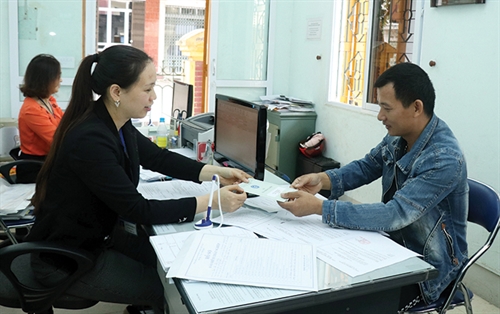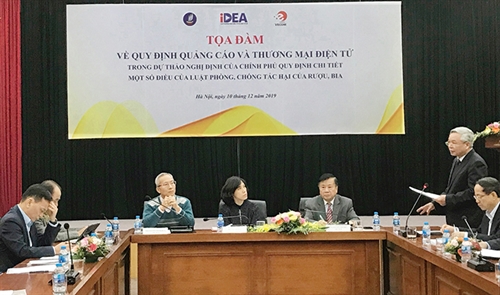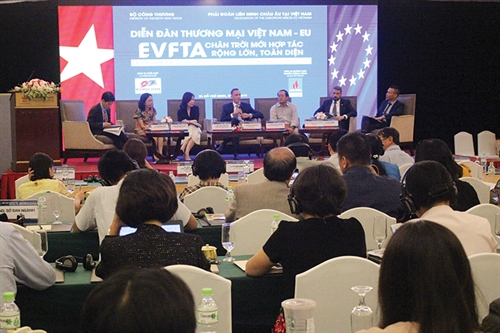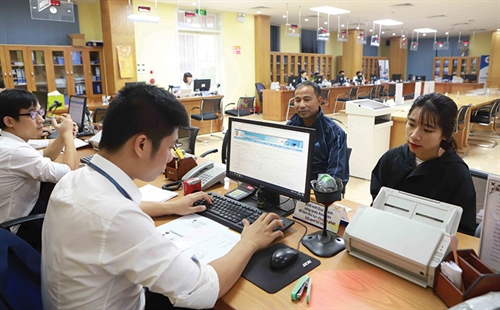Social insurance is a main pillar of the social security system in Vietnam’s socialist-oriented market economy, which plays an important role in realizing social progress and justice, improving people’s lives, and ensuring socio-political stability and national sustainable development. Proper implementation of social insurance is the duty of the entire political system and responsibility of Party organizations and administrations, socio-political organizations, businesses and people. One of the key factors for proper implementation of social insurance is policies and laws governing this social service. This article examines limitations in the current legal system on social insurance and puts forward solutions for improvement of this important system.
Assoc. Prof. Dr. Nguyen Hien Phuong[1] & Pham Thi Hai Diu, LL.M[2]
Overview of social insurance law in Vietnam
Social insurance is regarded as the “spine” of the social security system and exerts great impacts on this system and also on the entire society. Being fully aware of the importance of social insurance, the Party and State have always paid attention to and improved social insurance policies to meet international integration requirements. The legal system on social insurance has become more and more complete and conformable with treaties to which Vietnam is a contracting party. The organizational model of the social insurance system has also been renovated with social insurance agencies separated from the system of state management agencies, forming an independent system which has gradually conformed to the development trend of social insurance around the world.
Over the recent years, Vietnam’s social insurance system has seen vigorous developments through reform of administrative procedures and application of information technology, aiming to bring greater convenience and reduce time and cost for the insured.
The Social Security (Minimum Standards) Convention, 1952 (Convention No. 102), of the International Labor Organization (ILO), provides nine social insurance policies. Out of these policies, Vietnam is currently implementing six fundamental ones, including sickness, maternity, occupational accident and disease, retirement, survivorship, and unemployment under both compulsory and voluntary social insurance. With more entitlements and wider coverage, social insurance has actually become a critical safety net for workers based on income protection policies.
At the same time, remarkable achievements have been seen in the improvement and implementation of the social insurance law. According to the Vietnam Social Security’s 2018 statistics, by the end of 2018, the total number of participants in compulsory social insurance was 14.7 million, accounting for 30.4 percent of the working-age population. The number of unemployment insurance buyers was 12.6 million, making up 26.2 percent of the workforce. Besides, more than 3.1 million people enjoyed monthly pensions and social insurance allowances.
However, the legal system on social insurance still reveals some shortcomings.
First, legal provisions on implementation of social insurance remain incomplete, falling short of closely combining various social security layers such as employment, income, sustainable poverty reduction, and social relief, into a multi-layer system to protect people’s incomes.
Second, the number of social insurance participants remains modest compared to the total workforce. With two forms of voluntary and compulsory social insurance, it is expected that insurance could cover the entire labor pool, especially voluntary social insurance for employees from the non-formal sector. Nevertheless, after 10 years’ implementation of social insurance policies, the number of voluntary social insurance buyers was just around 300.000 out of a total of 40 million farmers and employees in the non-formal sector who have no industrial relations. This could be attributed to the situation that voluntary social insurance regimes are not diverse (at present, voluntary social insurance covers only retirement and survivorship regimes) with high premium rates and without support from employers, and especially workers’ awareness about social insurance is limited. Therefore, nearly 70 percent of the workforce have no access to the income protection system.
 |
| Members of the NA Standing Committee discuss the implementation of the 2013 Constitution at its 37th session in September 2019__Photo: Van Diep/VNA |
Third, compulsory social insurance also reveals limitations in spite of having a broad coverage of employees working under labor contracts of one month and a longer term. At present, foreign workers in Vietnam and Vietnamese guest workers still encounter difficulties in accessing social insurance. According to Government Decree 143, effective on December 1, 2008, dealing with compulsory social insurance for foreign workers in Vietnam, foreign workers in Vietnam are subject to compulsory social insurance, except those who are transferred within an enterprise or reach the retirement age prescribed in the Labor Code. This provision appears to be clear but there have arisen some problems in its practical implementation. For instance, whether social insurance is compulsory for a foreign worker who works under a letter of appointment of the parent company, has a work permit but has no labor contract and does not receive salary in the Vietnam-based company (but receives salary from the parent company) remains an unanswered question. Meanwhile, most Vietnamese guest workers do not wish to buy social insurance for the reason of high premium rate (22 percent). Another reason is that many of them have never joined social insurance before going abroad to work for just two to three years.
Fourth, the retirement regime remains inappropriate in various aspects. The provision requiring workers to pay social insurance premiums for at least 20 years in order to receive pension (this period is just 10 years under laws of other countries) has discouraged a segment of workers or persons who start to buy social insurance after the age of over 45 as they would not meet this requirement (Nguyen Huu Dung, 2017).
Furthermore, the principles on equality in payment-enjoyment and sharing in social insurance seem to be unsatisfactory. Meanwhile, the calculation of pension for employees in the state sector and those in the private sector is not really fair. The conditions for receiving pension are stringent while those for enjoying lump-sum social insurance allowances are rather loose; lump-sum social insurance benefits can hardly guarantee the lives of the elderly and will ultimately put a burden on the society in the long term, affecting social security. Another problem is that the number of pensioners has rapidly increased against the slowly rising number of newcomers in social insurance plus the increased life expectancy of people, putting pressure on the balancing capacity of the social insurance fund (Nguyen Mau Quyet, 2018).
Fifth, not a few social insurance obligees shirk or delay the payment of social insurance premiums while there lack mechanisms for sanctioning violations and settling disputes in social insurance. The most typical problem lies in the legal provisions that a lawsuit against businesses shirking payment of social insurance premiums must be filed by the grassroots trade union organization which in its turn needs to be authorized by every single employee. These provisions are unfeasible given that grassroots trade union officials are salaried by employers and employees do not want to be sacked.
Requirements and orientations for improving social insurance legislation
On May 23, 2018, the Party Central Committee (the 12th National Congress) issued Resolution 28 on reform of social insurance policies with many novel provisions. It sets the targets that 35 percent, 45 percent and 60 percent of the labor pool in working age will be covered by social insurance by 2021, 2025 and 2030, respectively. To attain these targets, the law on social insurance should early be revised to meet the following requirements:
Firstly, a multi-layer social insurance system should be built to consist of three layers. Layer 1, with the State assuming the key responsibility, includes retirement allowances for the elderly without monthly pension or social insurance allowance and facing difficulties in their lives. Layer 2, with the joint participation of the State, employers and employees, is basic social insurance composed of compulsory social insurance and voluntary social insurance to be gradually shifted to compulsory social insurance and finally universal social insurance. Layer 3, with the joint participation of employers and employees, is voluntary supplementary retirement insurance designed for higher-income earners.
Secondly, social insurance policies should be reformed in tandem with the the renewal and development of other social policies, especially regimes on salary, income, occupational safety and health, and social assistance, in order to ensure social security for all people.
Thirdly, the social insurance coverage should be broadened along with improving regulations on payment of social insurance premiums and enjoyment of social insurance benefits, adhering to the principles of fairness, equality, sharing and sustainable development.
Fourthly, to make social insurance an effective instrument of the State in redistributing incomes in an equal and rational manner among all strata of people and reducing state budget expenditures to ensure sustainable social security.
Fifthly, the implementation of social insurance policies should ensure equal social status for employees in different economic sectors so as to promote production development.
Sixthly, entitlements under different social insurance regimes should be regularly adjusted to suit practical conditions and living standards of the whole society in each period with a view to guaranteeing the lives of social insurance buyers when they face risks, and helping them overcome difficulties by creating substitute incomes or maintaining part of their incomes after they retire.
Solutions for improving social insurance policies
The improvement of the regulations on social insurance in the future must stick to the guidelines, objectives, contents and tasks spelled out in Resolution 28.
First, it is necessary to improve the legal system on social insurance and relevant laws for institutionalizing social insurance reform policies in line with Party resolutions. This should be carried out together with completing laws and policies on salary and employment and policies toward people with meritorious services to the revolution, as well as relevant laws and policies. The National Assembly should early institutionalize the viewpoints, objectives and contents of social insurance reform in its laws, ordinances and resolutions. It should also review relevant laws, ordinances and resolutions and propose necessary revisions in its annual legislative programs. During 2020-25, importance would be attached to improving relevant social insurance policies in the course of revising the Labor Code, National Assembly Resolution 93 of 2015 on lump-sum social insurance allowances for employees, Law on the Elderly, Law on Vietnamese Guest Workers, Law on Employment, and Law on Social Insurance.
Second, the Ministry of Labor, Invalids and Social Affairs should take charge of reviewing five years’ implementation of the Law on Social Insurance and propose the National Assembly to amend this Law in the direction of expanding the coverage of compulsory social insurance to business household owners, enterprise or cooperative managers having no salary, and persons involved in industrial relations, carrying out business or service activities, or earning incomes which can be managed by the State via tax offices or business registration agencies. Every local administration should be assigned to increase the number of social insurance buyers in each period while adopting policies to involve poor people and low-income earners in voluntary social insurance. There should also be specific guidelines for foreign workers in Vietnam without labor contract to participate in compulsory social insurance.
Third, short-term insurance packages would be designed for voluntary social insurance buyers, persons with a short period of social insurance premium payment, and Vietnamese guest workers, offering them appropriate premium rates.
Fourth, it is necessary to revise regulations on the proportions of social insurance premiums to be paid by employers and employees with a view to harmonizing benefits of the two sides by reducing the financial burden on employers so that they do not shirk the payment of social insurance premiums or do not pay premiums at rates lower than prescribed, which would affect long-term benefits of employees.
Fifth, the period of social insurance premium payment in order to enjoy pension should be reduced from 20 years to 15 years. The method of pension calculation should be adjusted as follows: to reduce the accumulation rate for one year of social insurance premium payment from 2 percent to 1.5 percent, and the maximum rate of pension from 75 percent to 65 percent according to a roadmap corresponding to the increase in salaries and incomes used for calculation of social insurance premiums so as not to reduce pensions of retired employees. The long-term balancing capacity of the pension fund should be ensured according to international practices. A roadmap should be worked out for prolonging the period of social insurance premium payment to protect the interests of pensioners on the principles of equality in payment-enjoyment and sharing. The payment of lump-sum social insurance allowances should be restricted. Legal provisions should be revised to step by step raise the average retirement age and increase the pension reduction rate for employees who wish to receive pensions ahead of time.
Sixth, to step up administrative reform and information technology application, and simplify registration procedures for participation in social insurance, payment of social insurance premiums and enjoyment of social insurance benefits. The quality of social insurance services should be improved to be more friendly and transparent. Social insurance officers would be equipped with proper foreign language and counseling skills and all signs of causing troubles to people and businesses would be strictly handled.
Seventh, awareness about social insurance policies needs to be raised by intensifying the public dissemination of social insurance policies and laws. Particularly, effective solutions should be designed for involving ordinary employees in the formulation and implementation of social insurance policies and laws.
Eighth, the effect and efficiency of state management of social insurance should be improved while the organizational apparatus for implementation of social insurance policies should be streamlined. Better coordination is required in directing the implementation of social insurance policies and timely settlement of any arising problems. Information and data connection and sharing should be enhanced among state management agencies in charge of investment, finance, tax, and labor for better managing social insurance participants and implementing social insurance policies. A database on social insurance and a set of criteria for evaluating task performance and service quality of social insurance agencies should be developed.
Ninth, it is necessary to improve regulations on sanctions against violations, especially against acts of shirking or delaying the payment of social insurance premiums and seeking illegal benefits from social insurance policies. State management agencies in charge of social insurance and the agency managing the social insurance fund should be empowered to punish enterprises that shirk or delay the payment of social insurance premiums. Meanwhile, enterprises and employees should have the right to lodge complaints or file lawsuits against social insurance agencies if detecting the latter’s wrongdoings in the implementation of social insurance policies. The provision that only permits trade union organizations to initiate lawsuits against employers for non-payment of social insurance premiums should be abolished.
Finally, it is proposed to strengthen the financial and investment efficiency evaluation of the social insurance fund and diversify its investment portfolios and structure on the principles of safety, sustainability and effectiveness. Priority should be given to investment in government bonds, especially long-term ones, step by step expanding to fields with high profitability, and investing part of the fund’s idle money through trust funds in domestic and international markets.-









